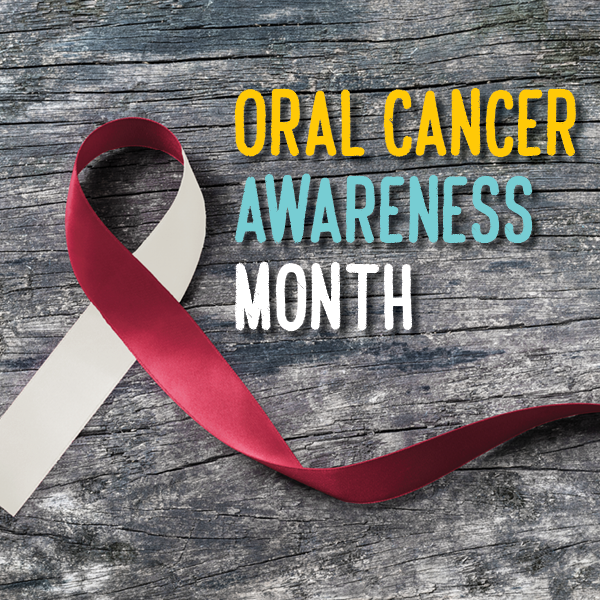
Oral cancer is a scary disease that takes the lives of over 8,500 Americans every year. It’s a widespread problem that can be treated, often very successfully, if caught early. The problem is, many people don’t know the signs of oral cancer and may never realize there’s a problem until it’s too late. So in honor of Oral Cancer Awareness Month, our dental office in Middletown is here to help spread awareness of not only the common signs of oral cancer, but also several risk factors.
Oral Cancer Signs & Symptoms
Being able to recognize the signs and symptoms of oral cancer can be crucial in catching and diagnosing the disease early when treatment is most successful. Some of the more common signs of oral cancer include:
- A chronic sore that doesn’t go away
- Bad breath
- Difficulty swallowing or chewing
- A lump on the cheek or tongue
- Change in voice
If you notice any of these symptoms, see your dentist in Middletown as soon as possible.
Risk Factors
It’s important to note that anyone can get oral cancer. However, there are some things that can put us at more risk of the disease including:
Gender: Men are two times more likely to develop oral cancer than women.
Age: People over 50 are the most affected by oral cancer.
Tobacco Use: Nearly 80% of those diagnosed with oral cancer are smokers or use smokeless tobacco. Smoking often leads to throat or mouth cancer, and smokeless tobacco usually results in gum, cheek, or lip cancer.
Alcohol: Approximately 70% of all those diagnosed with oral cancer are heavy drinkers.
Limiting your alcohol consumption and avoiding tobacco products are great ways to reduce your risk of getting oral cancer. But perhaps one of the best things you can do to protect yourself from the dangers of oral cancer is to see your dentist every six months. These visits can help catch any problems early while the chance for successful treatment is greatest.
Every year, over 50,000 people are diagnosed with oral cancer. Of those, 40% won’t survive more than five years. Early detection greatly increases the chance of successful treatment and survival. Schedule a visit with your dentist in Middletown today.
We have three dental offices in Middletown, Kettering, and West Chester.


 Review Us
Review Us Review Us
Review Us

